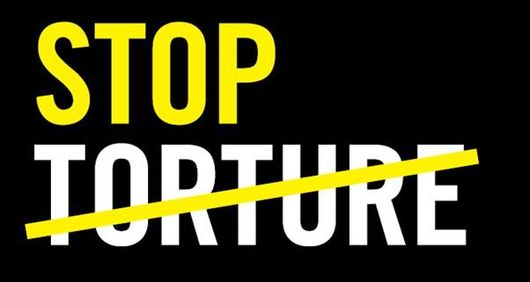Action for local groups on UK Torture Investigation

BRIEFING: The need for an independent judge-led inquiry into UK complicity in torture
The UN Convention Against Torture states that ‘no exceptional circumstances whatsoever, whether a state of war or a threat of war, internal political instability or any other public emergency, may be invoked as a justification of torture’. It also states there should be a prompt and impartial investigation wherever there is reasonable ground to believe an act of torture has been committed.
Amnesty International believes that there is credible evidence that the UK has been involved in grave human rights violations perpetrated against people held overseas since the attacks in the USA on 11 September 2001 to warrant the establishment of an independent, impartial and thorough judge-led inquiry. Credible allegations implicate the UK in torture or other ill-treatment, unlawful detentions and renditions. Over the years, Amnesty International and others have documented cases of the UK’s involvement in these abuses, including:
- UK personnel were present at and participated in interrogations of detainees held unlawfully overseas in circumstances in which the UK knew or ought to have known that the detainees concerned had been or were at risk of being tortured and/or whose detention was unlawful;
- UK personnel provided information (e.g. telegrams sent by UK intelligence personnel to intelligence services of other countries) that led the USA and other countries to apprehend and detain individuals when the UK knew or ought to have known that these people would be at risk of torture and/or unlawful detention;
- The UK was involved in the US-led programme of renditions and secret detentions through, for example, the use of UK territory (e.g. Diego Garcia) and/or airspace;
- UK personnel forwarded questions to be put to individuals detained by other countries in circumstances in which the UK knew or ought to have known that the detainees concerned had been or were at risk of being tortured and/or whose detention was unlawful;
- The UK systematically received information extracted from people detained overseas in circumstances in which it knew or ought to have known that the detainees concerned were
A number of individuals, including former Guantánamo Bay detainees have spoken publicly about UK involvement in their mistreatment. Shaker Aamer, who was released from Guantánamo in October 2015, after nearly 14 years without charge or trial, has said that a UK official was in the room when his head was beaten against a wall.
In 2008 the High Court confirmed that the UK, through its security service (MI5), had facilitated the interrogation of Binyam Mohamed in the knowledge that his initial detention in Pakistan was unlawful. Then, during a two-year period, the UK continued to facilitate interviews conducted on behalf of the US authorities when it must have realised that Binyam Mohamed was being held unlawfully by a third country and that the UK knew or ought to have known that there was a real risk that Binyam Mohamed was being tortured.
The Intelligence and Security Committee (ISC) has the task of investigating allegations of UK complicity in torture, but Amnesty International, along with many other anti-torture organisations including the UN, believes that the ISC is wholly unsuited to the task in hand. The structural limitations of the ISC, particularly its lack of power and independence from government, means that any investigation the ISC conducts is unlikely to get to the truth.
The Prime Minister ultimately decides what evidence the Committee can see, what it can publish and who can be a member. Crucially, the government retains the right to withhold information considered to be “sensitive” or on grounds of national security. The definition of what constitutes sensitive information is extremely broad and notably includes information provided by a foreign intelligence agency which can object to further disclosure of that information. Any Secretary of State can determine material is sensitive and in the interests of national security should not be disclosed to the ISC.
The ISC has a poor record in holding the UK to account. In 2007, three years after the rendition of the Libyan families, the ISC produced a report which said that there as “no evidence that the UK Agencies were complicit in any “Extraordinary Rendition” operations.”